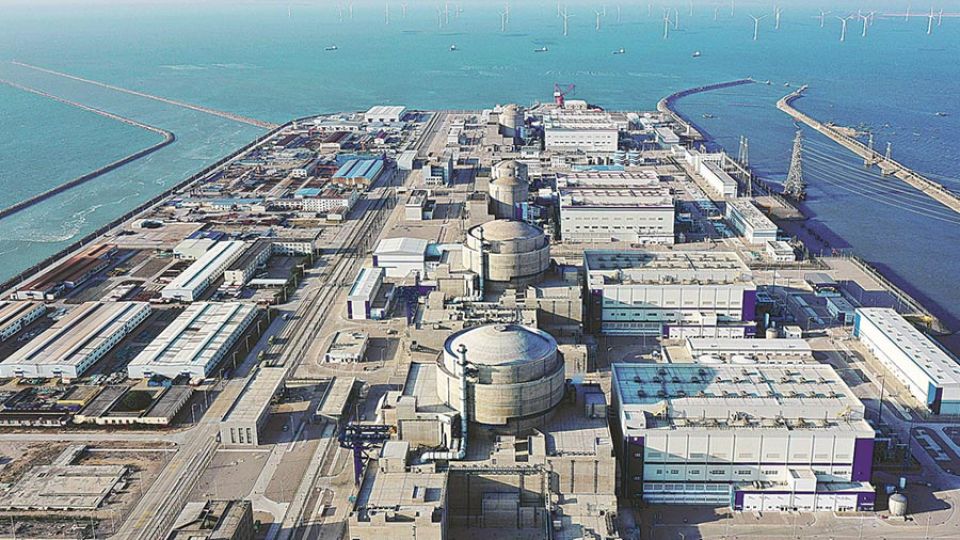September 9, 2022
BEIJING – A Chinese ambassador to the United Nations on Tuesday reiterated support for the efforts of the International Atomic Energy Agency (IAEA) and called for the safety and security of nuclear facilities in Ukraine.
Geng Shuang, China’s deputy permanent representative to the United Nations, told a UN Security Council briefing that thanks to the joint corporation of Russia and Ukraine, IAEA Director General Rafael Grossi and his colleagues made a successful visit to the Zaporizhzhia nuclear power plant.
The trip helped “gain a comprehensive and objective understanding of the nuclear facilities’ operation and damages, so as to take targeted actions”, Geng said.
Last week, Grossi led a 14-member expert mission to the plant. Two of those experts have remained at the nuclear facility on a permanent basis to ensure its safety.
The UN nuclear watchdog on Tuesday released a report and said the experts will “carry out detailed and continuous work to assess the physical damage to the plant’s facilities, determine the functionality of the main and backup safety and security systems, and evaluate the staff’s working conditions, in addition to performing safeguards activities”.
“China is pleased with this positive development and recognizes the efforts of Director General Grossi and the IAEA experts,” Geng said.
But the shelling of the plant continues and it did not cease even after the IAEA arrived at the facility. “This is truly worrying,” he said.
The Chernobyl nuclear accident in Ukraine in 1986 has not faded into memory nor have the effects of the Fukushima nuclear accident in Japan in 2011, Geng said.
“The world cannot afford yet another nuclear disaster,” he said.
“We once again call on the parties concerned to remain committed to humanity, scientific rationality, communication and cooperation; strictly abide by the convention on nuclear safety and other relevant international laws; earnestly safeguard the seven pillars proposed by Director General Grossi; avoid all actions that endanger the safety and security of nuclear facilities; and refrain from repeated tests on the edge of danger,” said Geng.
“We support continued presence of the IAEA experts at the ZNPP and hope that the resident experts can provide continuous, steady and professional technical support to guarantee the safety and security of the nuclear facilities. We also encourage the IAEA to maintain its communication with the relevant parties,” the envoy said.
Since the outbreak of the military conflict in Ukraine, the threat to the safety and security of nuclear power plants posed by armed conflicts has kept the world under the looming specter of a nuclear disaster, Geng said.
In the face of “countless lives and the well-being of generations, we cannot afford to take any chances or do nothing, but must do our best to minimize accidents”, he said.
“The international community should step up diplomatic efforts to promote the early resumption of negotiations between the parties, achieve a cease-fire, arrest the fighting as soon as possible, and eliminate nuclear security risks at their source,” Geng emphasized.
“We once again call on all parties to adopt a responsible approach to promote the de-escalation of the situation, work to find a peaceful solution to the crisis in Ukraine, work together to build regional peace and tranquility, and jointly maintain global security and stability,” said Geng.
UN Secretary-General Antonio Guterres told Tuesday’s briefing that Russia and Ukraine must stop all military activity that targets the nuclear plant site as well as attacks launched from its surroundings.
Any damage to the plant “could spell catastrophe, not only for the immediate vicinity, but for the region and beyond”, Guterres said.
The IAEA report also called for establishing a “nuclear safety and security protection zone” around the Zaporizhzhia plant.
“While the ongoing shelling has not yet triggered a nuclear emergency, it continues to represent a constant threat to nuclear safety and security with potential impact on critical safety functions that may lead to radiological consequences with great safety significance,” the report said.
Zaporizhzhia, one of Europe’s largest nuclear power plants, has been controlled by Russian forces since early March, while its Ukrainian staff has continued to operate it.
In recent weeks, the plant site has been attacked by shelling, sparking international concerns about its safety. On Monday, the shelling caused a fire that led to the plant being disconnected from Ukraine’s national power grid.


